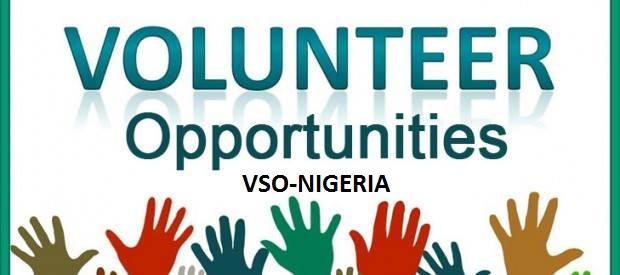
Introduction
Non-Governmental Organizations (NGOs) have long been central to Nigeria’s development landscape. From humanitarian aid to education, healthcare, women’s empowerment, agriculture, and poverty alleviation, NGOs play a crucial role in filling the gaps that the government and private sectors cannot always meet. One of the most appealing benefits for professionals seeking NGO jobs in Nigeria is the accommodation support provided. For many applicants, this assistance can significantly ease their transition into these roles. Applicants, this aspect is crucial.—especially young graduates and professionals willing to work in rural or conflict-affected areas—having housing provided makes a huge difference.
In this guide, we will delve into NGO jobs in Nigeria that provide accommodation.. We will break down the types of roles available, the NGOs that offer housing, the skills required to qualify, the benefits and challenges, and practical steps to secure these jobs in 2025.
This post is detailed, fully optimized, and carefully crafted to provide you with accurate insights while keeping a natural, human flow.
Why NGOs Provide Jobs with Accommodation
Numerous NGOs in Nigeria work in difficult conditions where housing is often not easily accessible. For example, humanitarian organizations working in states like Borno, Adamawa, and Yobe (affected by insurgency) often deploy staff to areas where safe, decent housing may be limited. To attract skilled workers and ensure their safety, NGOs frequently include accommodation as part of the employment package.
Key reasons NGOs offer accommodation include:
- Encouraging professionals to work in remote areas – Most NGOs operate outside major cities. Housing attracts candidates to underserved regions.
- Ensuring staff safety – NGOs working in conflict zones often provide secure accommodation for their staff.
- Reducing living costs – Offering accommodation helps staff focus on work instead of worrying about rent.
- Supporting international staff and volunteers – Expatriates and volunteers coming from abroad are usually housed in NGO-provided facilities.
Types of NGO Jobs in Nigeria That Offer Accommodation
Not every NGO role comes with housing benefits. Typically, accommodations are offered for positions where staff are expected to work in hard-to-reach locations, in field operations, or on projects involving long hours. Here are the most common categories:
1. Field Officers
Field officers are directly involved in project implementation, monitoring, and community engagement. Since they spend most of their time in rural or semi-urban communities, accommodation is often provided near the project site.
2. Medical and Health Workers
Doctors, nurses, and community health workers employed by humanitarian NGOs (such as Médecins Sans Frontières and the International Rescue Committee) usually receive accommodation, particularly when deployed to medical camps or mobile clinics.
3. Humanitarian Aid Workers
Those working in disaster relief, refugee camps, and conflict zones almost always get accommodation. This ensures their safety and allows them to stay close to the communities they serve.
4. Program Managers and Coordinators
For senior roles in areas where housing is scarce, NGOs often provide housing allowances or direct accommodation. These roles typically involve overseeing teams and coordinating projects.
5. International Volunteers
NGOs frequently provide housing for foreign volunteers who work in Nigeria for months or years. This saves volunteers from rental stress and ensures they are located near project areas.
6. Education and Teaching Roles
In rural schools run by education-focused NGOs, teachers may be offered on-site accommodation to encourage long-term commitment.
7. Logistics and Security Staff
NGOs working in high-risk areas often provide housing for drivers, logistics personnel, and security teams. This ensures availability and quick mobilization during emergencies.
Examples of NGOs in Nigeria Offering Jobs with Accommodation
While not all organizations openly advertise this benefit, many NGOs operating in Nigeria are known for providing housing support for staff, especially in field-based roles.
- Médecins Sans Frontières (MSF) – Provides accommodation and meals for medical staff and field workers deployed in conflict zones and underserved communities.
- International Rescue Committee (IRC) – Offers housing and transport support for staff in humanitarian response programs.
- Norwegian Refugee Council (NRC) – Known for giving field staff accommodation in secure compounds.
- Action Against Hunger (ACF) – Provides housing benefits for nutritionists, field officers, and health workers in Northern Nigeria.
- Catholic Relief Services (CRS) – Offers staff housing in certain remote project locations.
- Save the Children – Provides accommodation for field workers in rural education and health projects.
- Plan International – Often offers secure accommodation for international staff and rural-based project officers.
- Doctors Without Borders – Ensures all medical staff have safe accommodation near hospitals or mobile clinics.
- World Health Organization (WHO) field projects – Provides allowances or housing for short-term health campaigns in underserved areas.
- Small local NGOs – Many community-based organizations offer housing as an incentive, particularly for teachers, trainers, and volunteers.
Skills and Qualifications Needed
To secure NGO jobs with accommodation, you need a blend of education, skills, and soft attributes.
Academic Requirements
- Bachelor’s or Master’s degree in relevant fields such as Public Health, Development Studies, Education, Agriculture, Social Sciences, or Logistics.
- Medical roles may require professional licenses and certifications.
Professional Skills
- Project management and field operations experience.
- Strong communication and community engagement skills.
- Data collection, monitoring, and reporting.
- Medical and technical expertise (for health-related roles).
- Crisis response and problem-solving skills.
Soft Skills
- Adaptability to remote or challenging environments.
- Cultural sensitivity and respect for local traditions.
- Ability to work under pressure.
- Teamwork and collaboration.
Benefits of NGO Jobs with Accommodation
Working with an NGO in Nigeria is rewarding, but when housing is included, the advantages multiply.
- Reduced Living Costs – Accommodation is a significant financial relief in cities like Abuja and Lagos, where rent is high.
- Security and Safety – NGOs often provide housing in secure compounds with guards, ensuring staff safety.
- Convenience – Living close to project sites minimizes commuting stress.
- Increased Savings – With rent covered, staff can save more from their salaries or allowances.
- Job Satisfaction – Housing support often boosts morale, especially in remote assignments.
- Networking – Shared accommodations foster collaboration and networking among staff and volunteers.
Challenges to Expect
While NGO jobs with accommodation are attractive, they come with challenges:
- Remote Living Conditions – Housing is often in rural or semi-urban locations with limited amenities.
- Restricted Movement – For security reasons, staff may be required to stay within designated compounds.
- Shared Facilities – In some cases, staff share accommodation, reducing privacy.
- Cultural Adjustment – Living in new communities requires adapting to local customs.
- High Workload – Many field jobs involve long hours and emergency responses.
How to Find NGO Jobs with Accommodation in Nigeria
Securing an NGO job that includes housing requires a targeted approach. Here are practical steps:
1. Search on NGO Job Boards
Websites like ReliefWeb, NGOJobsAfrica, and DevNetJobs list opportunities in Nigeria, often specifying benefits like accommodation.
2. Visit Official NGO Websites
Many organizations advertise vacancies directly on their websites. Examples include:
3. Network with Professionals
Join LinkedIn groups, humanitarian forums, and local NGO events. Networking often reveals unadvertised opportunities.
4. Apply Through Volunteer Programs
Some NGOs start candidates as volunteers with accommodation, later transitioning them to paid roles.
5. Follow Social Media Pages
Many NGOs in Nigeria post job vacancies on their official Twitter, LinkedIn, or Facebook pages.
Salary Expectations for NGO Jobs with Accommodation
Salaries vary widely depending on the organization and role. However, accommodation significantly boosts the total compensation package.
- Entry-Level Field Officers: ₦120,000 – ₦250,000 per month, plus housing.
- Mid-Level Program Managers: ₦300,000 – ₦700,000 per month, with housing allowance or NGO-provided housing.
- Medical Professionals: ₦400,000 – ₦1,000,000 per month, plus accommodation.
- International Staff: Often receive higher packages with housing, transport, and hazard allowances.
Future Outlook: NGO Jobs in Nigeria with Housing in 2025
The demand for NGO professionals with accommodation is expected to rise in 2025 due to:
- Humanitarian Crises – Continued challenges in Northern Nigeria mean more aid workers will be deployed.
- Health Interventions – Post-pandemic recovery and ongoing vaccination campaigns create demand for health staff.
- Education Projects – NGOs expanding education access in rural areas will provide housing to attract teachers.
- Agricultural and Food Security Programs – Organizations working on food security in rural Nigeria will continue to offer housing.
Frequently Asked Questions (FAQs)
1. Do all NGO jobs in Nigeria come with accommodation?
No. Accommodation is typically provided for field roles, humanitarian jobs, and international volunteers.
2. Can Nigerian graduates apply for NGO jobs with accommodation?
Yes. Many NGOs encourage Nigerian graduates, especially in public health, social sciences, and development studies, to apply.
3. Are accommodations free or deducted from salaries?
In most cases, housing is free, but some organizations provide a housing allowance instead.
4. Is accommodation provided only in rural areas?
Mostly, yes. In major cities, NGOs may give housing allowances instead of providing staff quarters.
5. Can families be accommodated too?
Some NGOs provide family housing for senior staff, but most accommodations are for single staff members.
Final Thoughts
Job opportunities in NGOs in Nigeria that provide accommodation and present a unique opportunity for professionals who want to make an impact while enjoying the security and convenience of housing benefits. These positions are crucial in humanitarian, health, and education sectors, particularly where staff are required in remote and underserved communities.
For anyone considering a career with NGOs in 2025, targeting jobs that include accommodation is both practical and rewarding. With the right qualifications, skills, and application strategy, you can secure a fulfilling role that combines humanitarian service with financial and personal benefits for yourself.
Related content: Best NGOs to Work.





